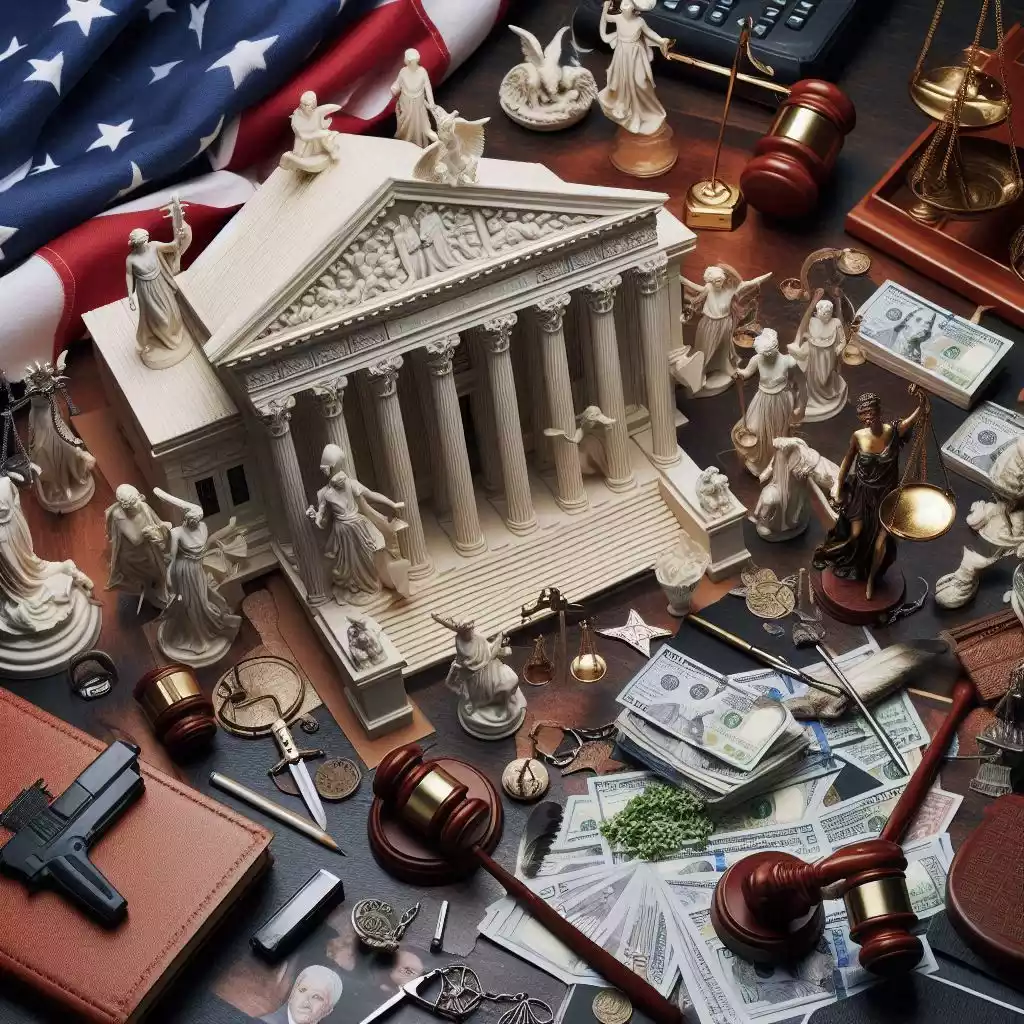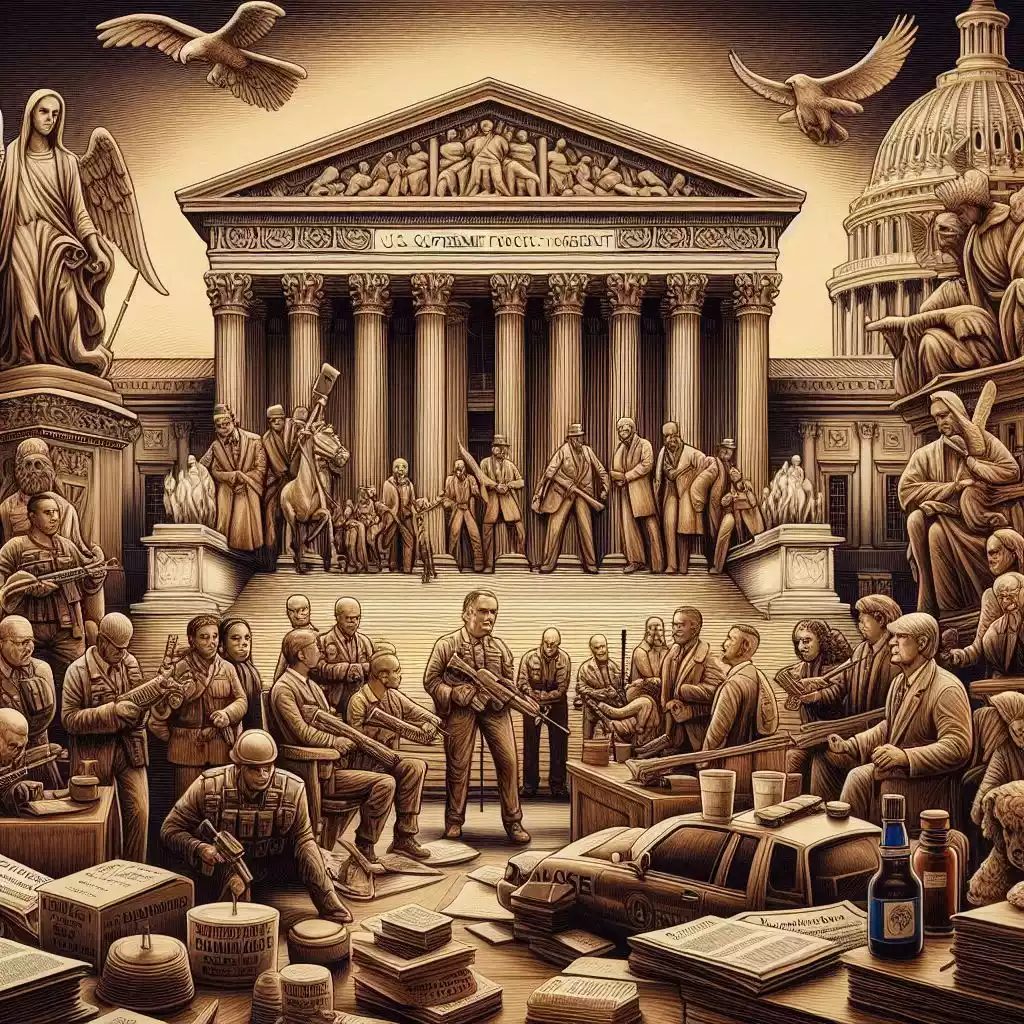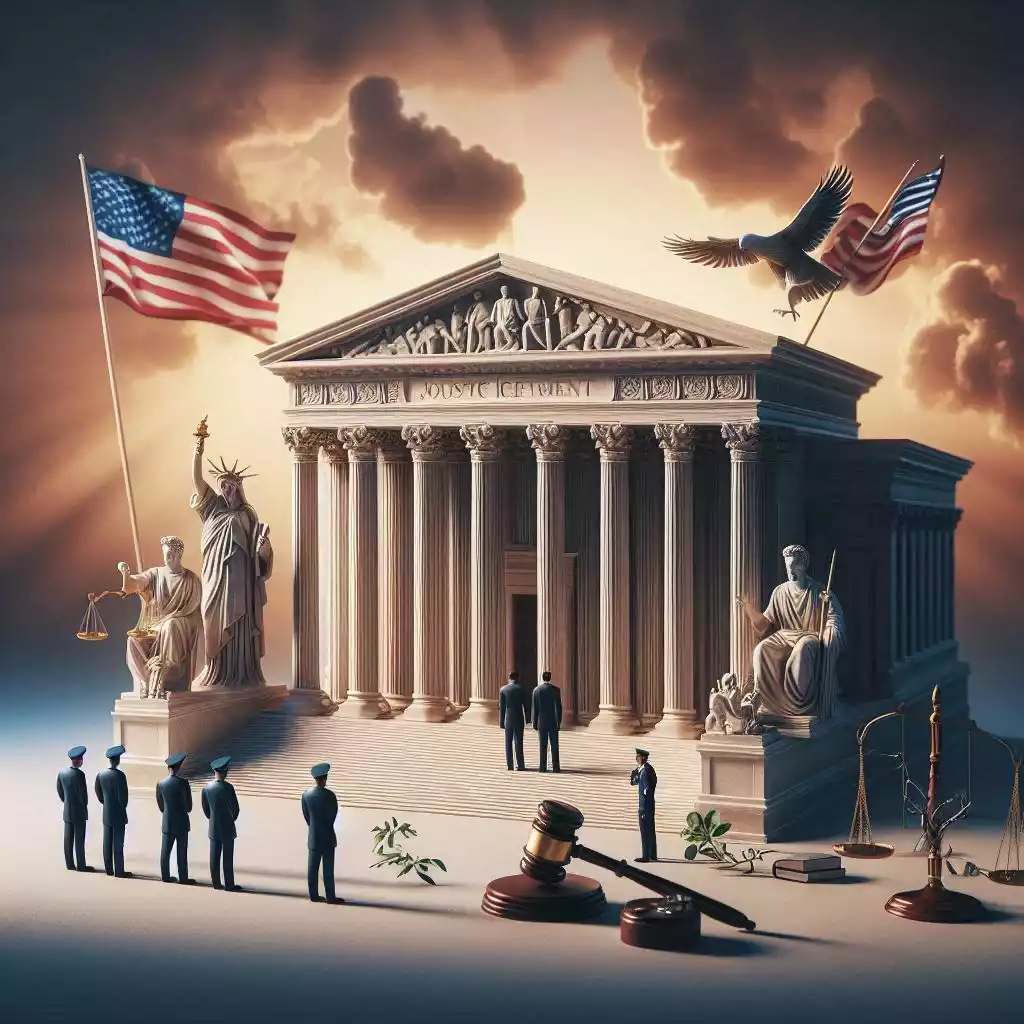The U.S. Judicial Conference, the federal judiciary’s top policymaking body, has declined requests to refer Supreme Court Justices Clarence Thomas and Ketanji Brown Jackson to the Department of Justice (DOJ) for ethics investigations. The decision follows months of scrutiny over financial disclosure practices involving both justices and raises broader questions about judicial accountability and the enforcement of ethics standards within the judiciary.
The Ethics Controversy Surrounding Justice Clarence Thomas
Justice Clarence Thomas, a member of the Supreme Court’s 6-3 conservative majority, has faced intense criticism for failing to disclose gifts and luxury travel provided by Harlan Crow, a wealthy Texas businessman. Reports by investigative outlets, including ProPublica, revealed that Justice Thomas had omitted such information from his financial disclosure reports, prompting Democratic lawmakers to seek a DOJ referral.
In an April 2023 letter to the Judicial Conference, Senator Sheldon Whitehouse and Representative Hank Johnson argued that Justice Thomas had willfully violated the Ethics in Government Act of 1978 by not reporting the gifts and travel. They claimed his actions undermined public trust in the judiciary and warranted further investigation by the DOJ.
French Quarter Terror Attack: Strength, Community, and Recovery – GOVT JOBS NEWS
Justice Thomas defended his actions, stating he had been advised that such disclosures were unnecessary under the “personal hospitality” exemption. However, he pledged to comply with updated guidelines beginning with his 2022 annual report, which he filed in August 2023. His amended filings reportedly address the omissions and bring him into compliance with federal financial disclosure requirements.

The Case of Justice Ketanji Brown Jackson
Justice Ketanji Brown Jackson, the first Black woman to serve on the Supreme Court, also came under scrutiny for omissions in her financial disclosures. A conservative group, the Center for Renewing America, led by former Trump administration official Russell Vought, requested a DOJ referral based on these omissions. However, Justice Jackson has since amended her reports to rectify the errors, a move acknowledged by the Judicial Conference in its response.
Judicial Conference’s Decision
In letters responding to both requests, U.S. District Judge Robert Conrad, who acts as the Judicial Conference’s secretary, outlined the rationale behind the body’s decision to reject the referrals. Judge Conrad emphasized that both justices had taken steps to address the concerns raised. Justice Thomas filed amended financial disclosures and agreed to adhere to updated guidance, while Justice Jackson’s amendments resolved the omissions in her reports.
“We have no reason to believe [Justice Thomas] has done anything less than fully comply with the relevant guidance,” Conrad wrote in his letter. He also noted that constitutional questions about the Judicial Conference’s authority to refer cases to the DOJ required further study.
Christmas Travels Resumes as American Airlines Lifts Ground Stop – GOVT JOBS NEWS
Moreover, Judge Conrad pointed out that the lawmakers’ request was effectively moot because Senator Whitehouse and another senator had already written directly to Attorney General Merrick Garland, asking for a special counsel to investigate Justice Thomas’s financial disclosures.

Strengthening Financial Disclosure Standards
The Judicial Conference’s decision comes amidst broader efforts to strengthen financial disclosure standards for federal judges. Judge Conrad highlighted that the judiciary has been revising its policies since 2023 to clarify the limits of the “personal hospitality” exemption and ensure greater transparency. These updates aim to align the judiciary’s disclosure requirements with modern expectations of accountability.
Justice Thomas’s amended filings reportedly reflect these updates, including a more comprehensive accounting of gifts and travel provided by Harlan Crow. Justice Jackson’s amendments similarly bring her disclosures in line with the revised standards.
Reactions to the Decision
The Judicial Conference’s decision has drawn mixed reactions from lawmakers and advocacy groups. Senator Whitehouse criticized the judiciary’s response, accusing it of “shirking its statutory duty” to hold Justice Thomas accountable for alleged ethics violations. In a statement, Whitehouse argued that the judiciary’s refusal to act undermines public trust in the Supreme Court and highlights the need for stronger oversight mechanisms.
On the other hand, conservative groups, including the Center for Renewing America, expressed disappointment that their request regarding Justice Jackson was also rejected. These groups argue that judicial accountability should apply equally to all justices, regardless of ideological leanings.
Student Death at Binghamton University: That Shook the Campus – GOVT JOBS NEWS
Broader Implications for Judicial Accountability
The controversy over financial disclosures underscores the ongoing debate about judicial accountability and transparency. Critics argue that the Supreme Court’s justices operate with insufficient oversight, creating a perception that they are held to lower ethical standards than other public officials.
The Ethics in Government Act of 1978 was designed to promote transparency by requiring federal officials, including judges, to disclose their financial interests. However, the enforcement of these requirements has proven challenging, particularly for Supreme Court justices, who are not subject to the same ethics rules as lower court judges.
Calls for reform have grown louder in recent years, with advocates pushing for the creation of a binding code of conduct for Supreme Court justices. Such a code could clarify disclosure requirements and establish a mechanism for investigating alleged ethics violations.
Moving Forward
While the Judicial Conference’s decision resolves the immediate requests for DOJ referrals, the broader debate over judicial ethics is far from over. Advocacy groups and lawmakers continue to call for reforms that would enhance transparency and accountability within the judiciary.
Jobs for students Archives – GOVT JOBS NEWS
Justice Thomas and Justice Jackson’s cases highlight the complexities of enforcing financial disclosure requirements and the need for clear, enforceable standards. As the judiciary implements its revised disclosure policies, it remains to be seen whether these changes will restore public confidence in the integrity of the nation’s highest court.

